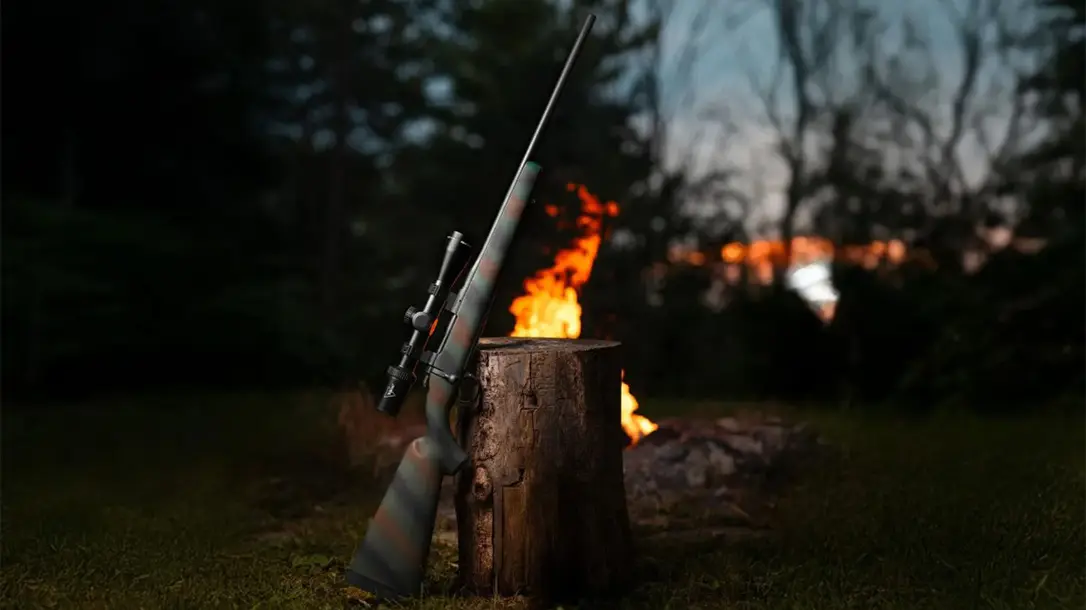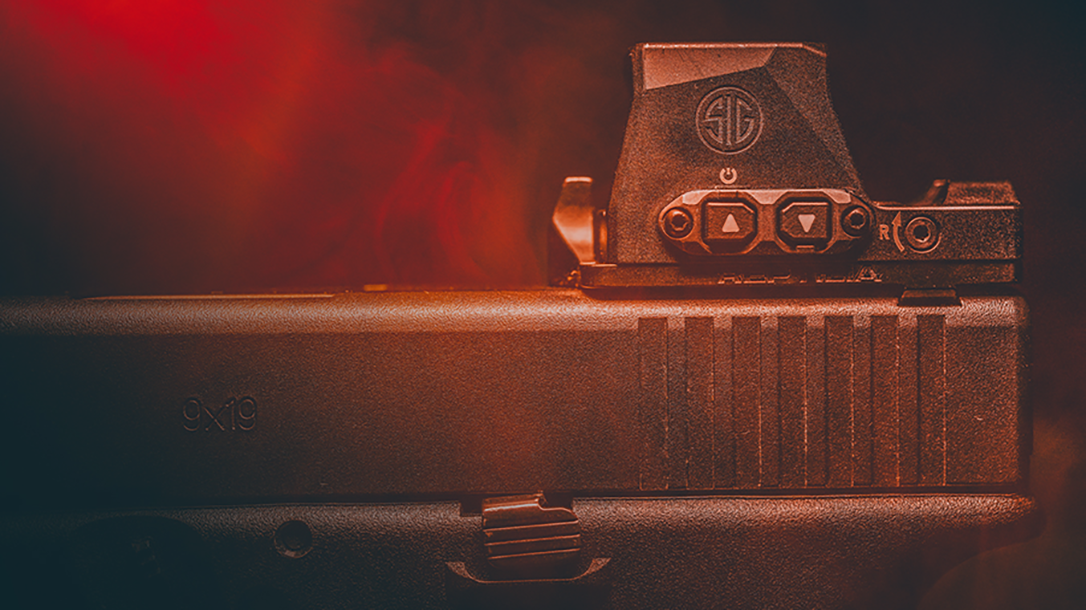How to Buy a Gun
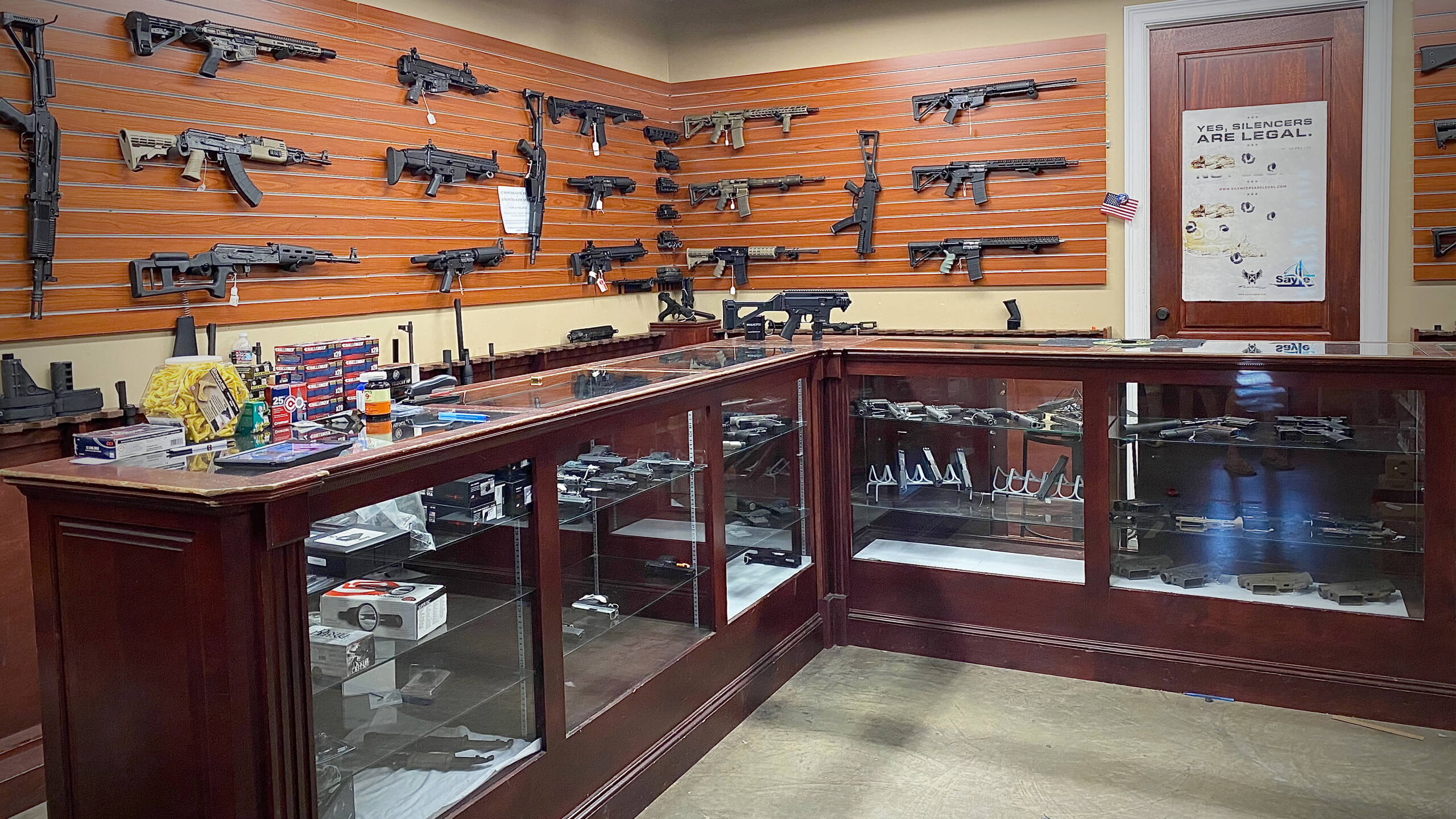
Today, more than ever, people are asking about how to buy a gun. Gun ownership in America is becoming more and more popular, bringing many new people into the firearms family.
In recent years, more than one million Americans have become first-time gun owners. For many, the chaos of the COVID-19 pandemic illustrated the wisdom of the Second Amendment. For others, more conventional criminal activity spurred them into buying a gun for self-defense.
For those of you who do want to get your first gun, but find the whole process utterly baffling, I hope to help. The vernacular, customs and variegated regulations associated with gun ownership can indeed seem daunting. As a result, we here at The Armory Life thought it might be helpful to create a basic primer on how to buy a gun in the United States of America.
Not unlike finance, plumbing, computer programming or brain surgery, once you get the hang of it the whole system will seem fairly straightforward. But we understand how intimidating it can be to purchase your first. So, let us help you learn the process.
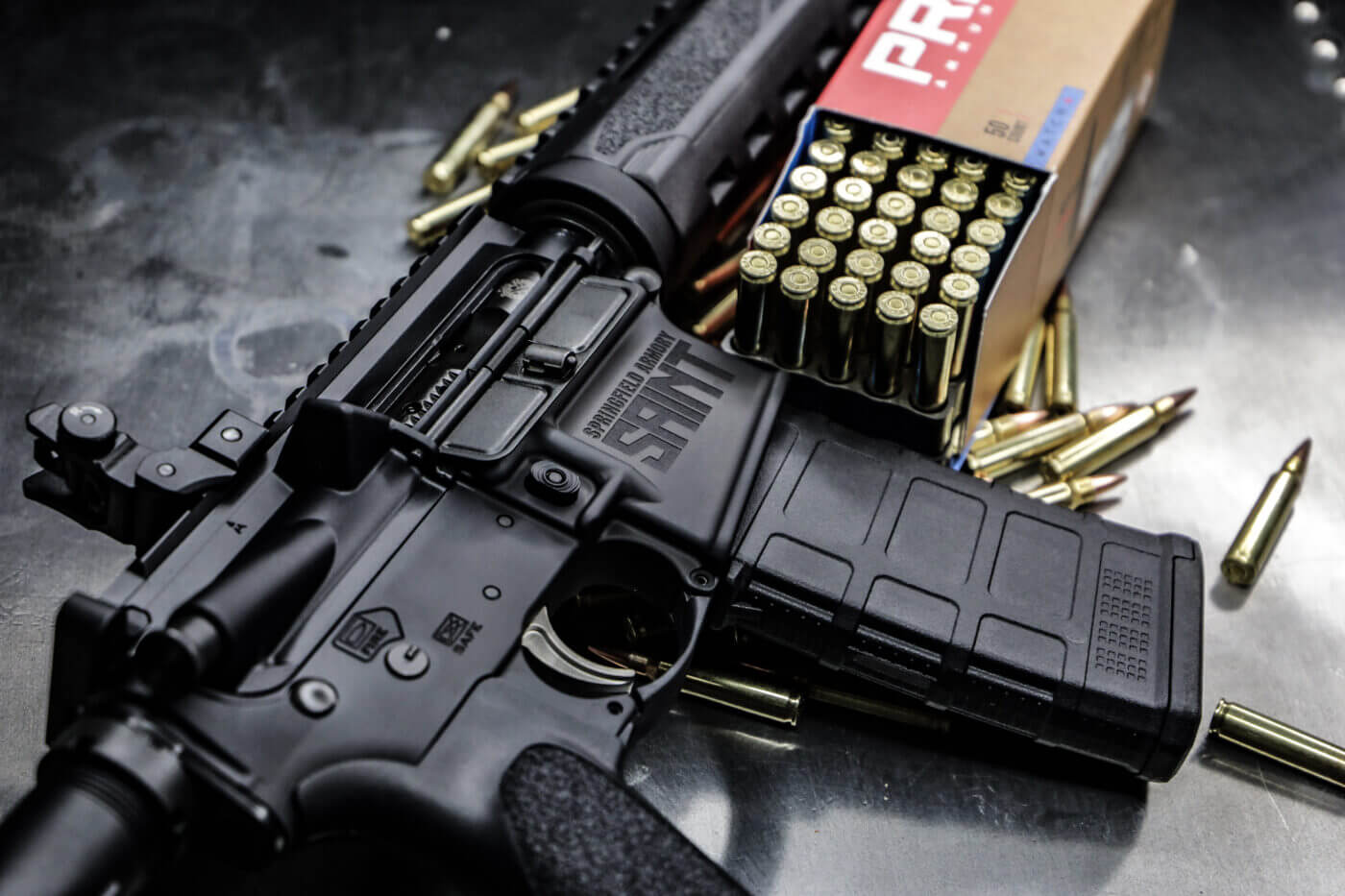
Intro to American Gun Culture
This process typically begins at your local gun shop. The archetypal gun shop employee is some large hirsute ex-Army Ranger covered in tattoos who oozes scary attitude. He’ll have a handgun on his hip and look like he munches pea gravel for breakfast. But looks can be deceiving.
On the other hand, a dear friend of mine owns the coolest gun shop in the world (Mississippi Auto Arms in Oxford, Mississippi). By contrast, he employs a petite and inoffensive young lady. She is engaging, knowledgeable and disarming. That guy is brilliant, if you ask me.
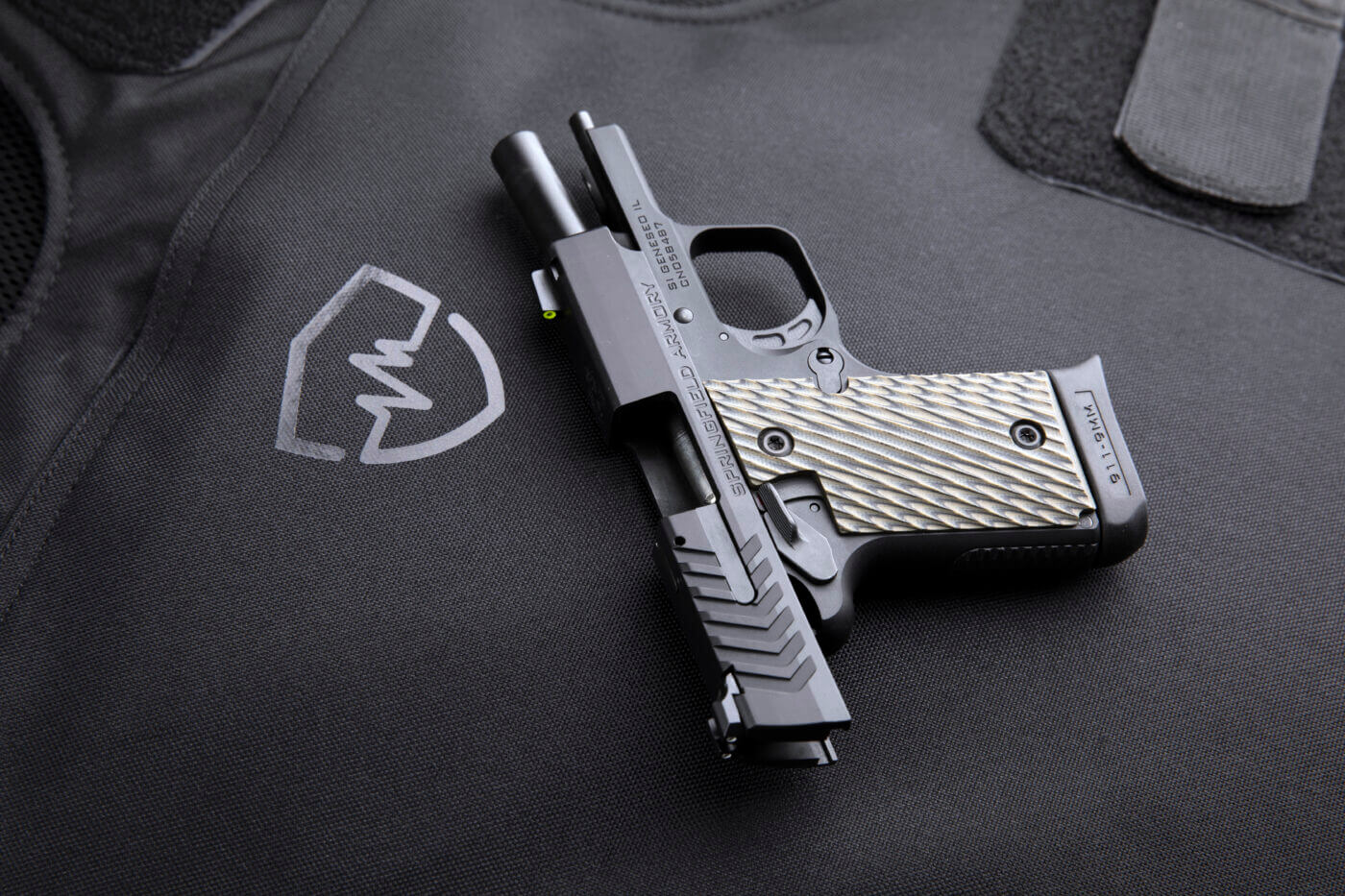
The bottom line is the folks in the gun industry are some of the friendliest you’ll ever meet. Some look rough while others look stylish. But nearly every one is someone you’d be willing to break bread with.
Chances are if you head into a gun shop, you’ll leave with a gun, some valuable information and a new friend.
Requirements to Purchase a Firearm
In general, you need to be a U.S. citizen with a clean criminal record. There are some narrow exceptions to this, and your local dealer can help explain the rules. Of course, for any detailed explanation of gun laws, find a competent attorney to consult with.
The document used to manage a firearm transfer is called an ATF Form 4473, and it asks a series of questions about your criminal, military and mental health background. The form has changed over the years, and many dealers even have electronic versions that you can fill out on a tablet.
The look of the form isn’t the essential part. Filling it out correctly is. Be sure to read every question closely and ask the licensed dealer if you have any confusion about a question. Intentionally falsifying information on the form is a crime. Inadvertently plugging in incorrect information can cause the firearm purchase to be denied.
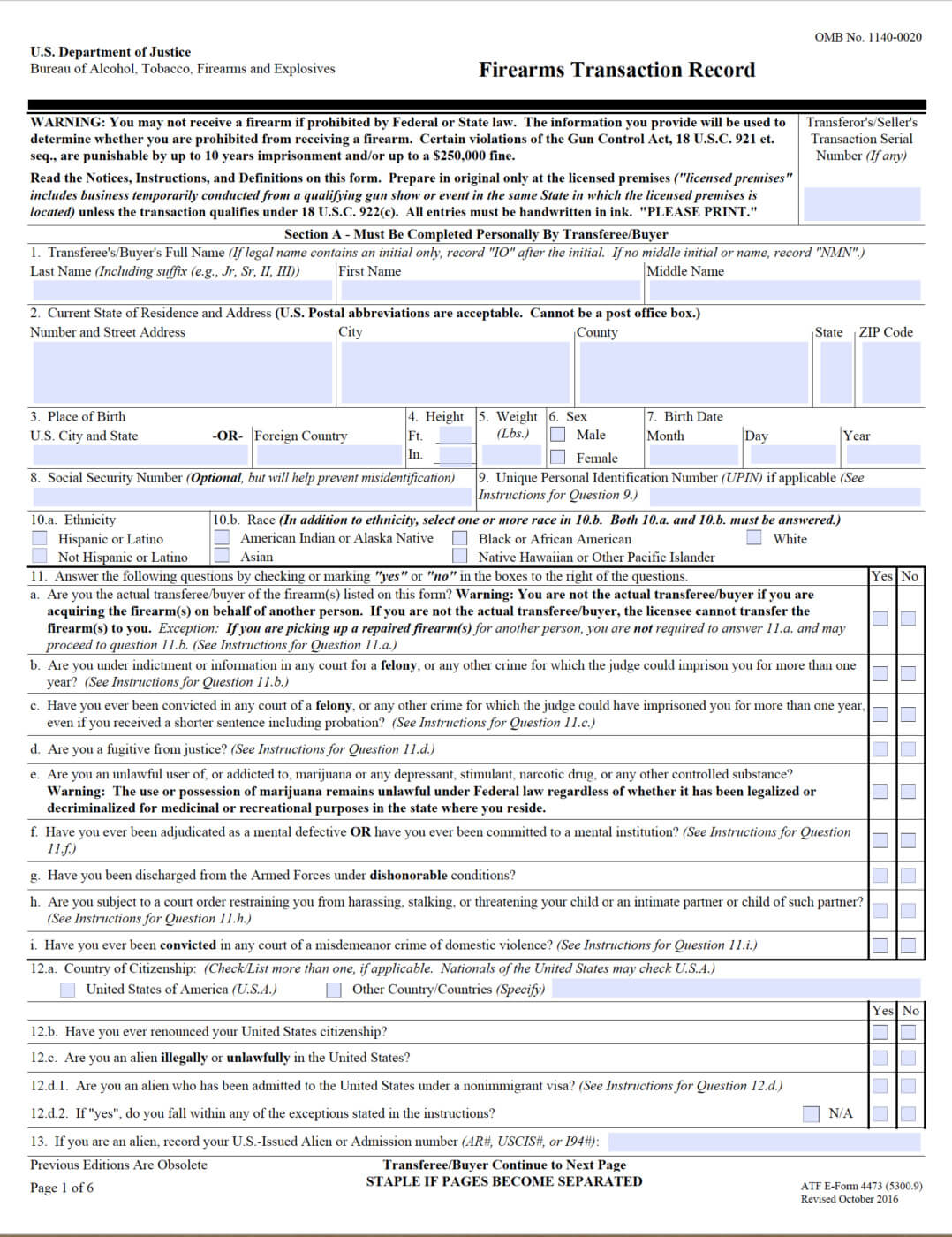
You will want to have your driver’s license or state ID when completing the paperwork for a gun purchase. Some states may require additional firearms licensure or IDs. Your dealer will let you know what, if any, additional identification is needed to be eligible to purchase a handgun, shotgun or other long gun at the gun store.
The dealer is going to verify your information using the NICS, which stands for National Instant Criminal Background Check System. Your responses must therefore be truthful. NICS checks you for a criminal history, adjudications of mental illness and anything else that would legally disqualify you from purchasing a firearm.
Although the name suggests otherwise, NICS is not always instant. If the system is backed up or you have a really common name, you may have to wait a few minutes to a few days for the check to come through. With some narrow exceptions, a firearm dealer will not transfer (complete the gun sale and allow you to take possession) a firearm to you until the NICS approval comes back.
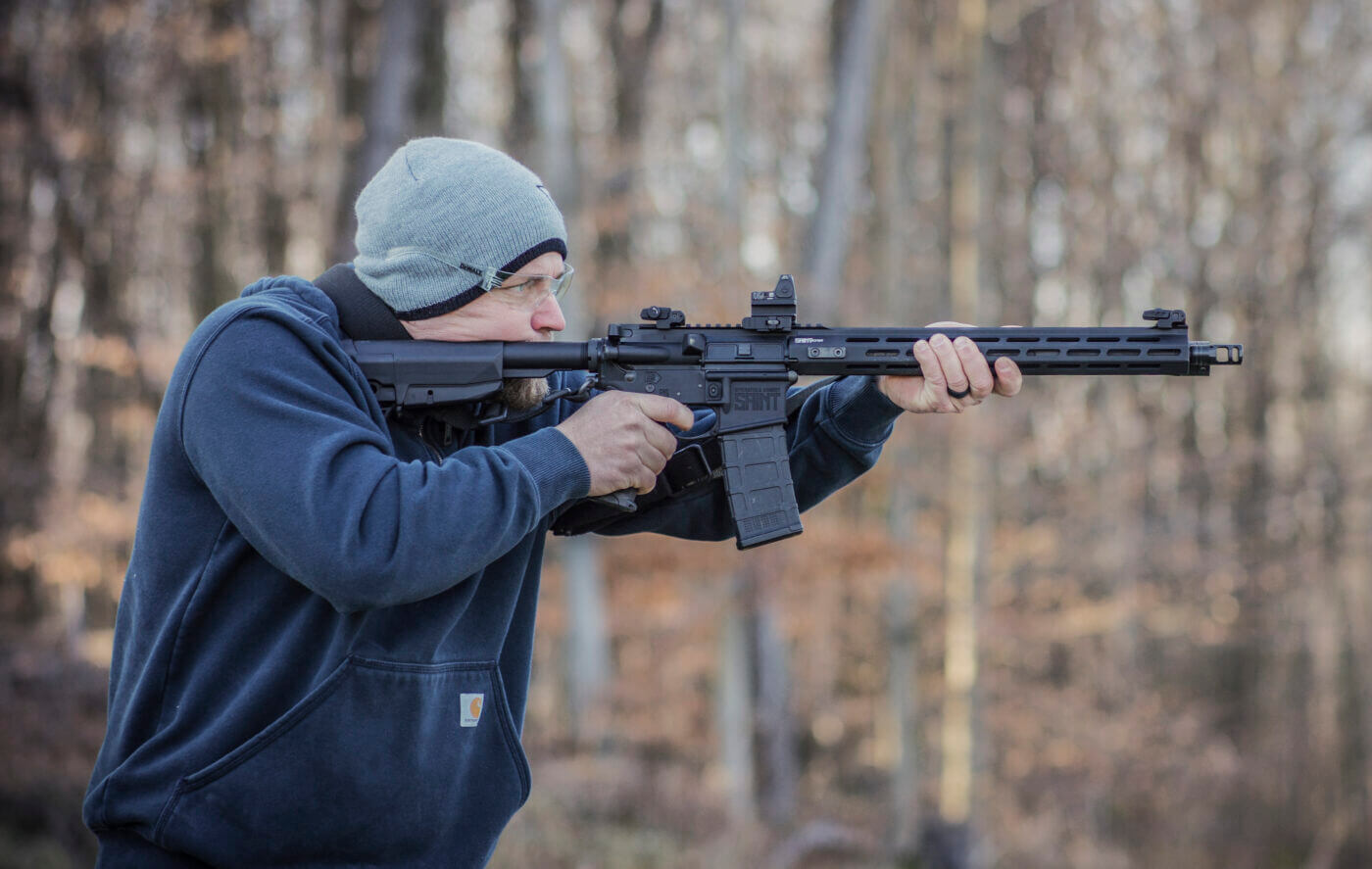
Some states have extra restrictions over and above what is required by the federal government. In freedom-averse places like New Jersey, Illinois, New York and California, some of those restrictions can be quite onerous. Across most of our Great Republic, however, gun ownership is fairly straightforward if you are a citizen with no criminal background.
Is There a “List”?
All commercially purchased guns must be physically transferred through a dealer with a Federal Firearms License (FFL). Your gun shop will have one of these. Some other businesses like hardware stores may maintain FFLs as well.
The regulatory system governing the national network of gun dealers dates back to 1968 and is actually quite elegant. When you buy a gun and fill out the 4473, that form never leaves the dealer’s premises. NICS checks that are approved are automatically purged every 24 hours. NICS checks that are denied are essentially maintained forever, but that doesn’t apply to you if you have a clean criminal record.
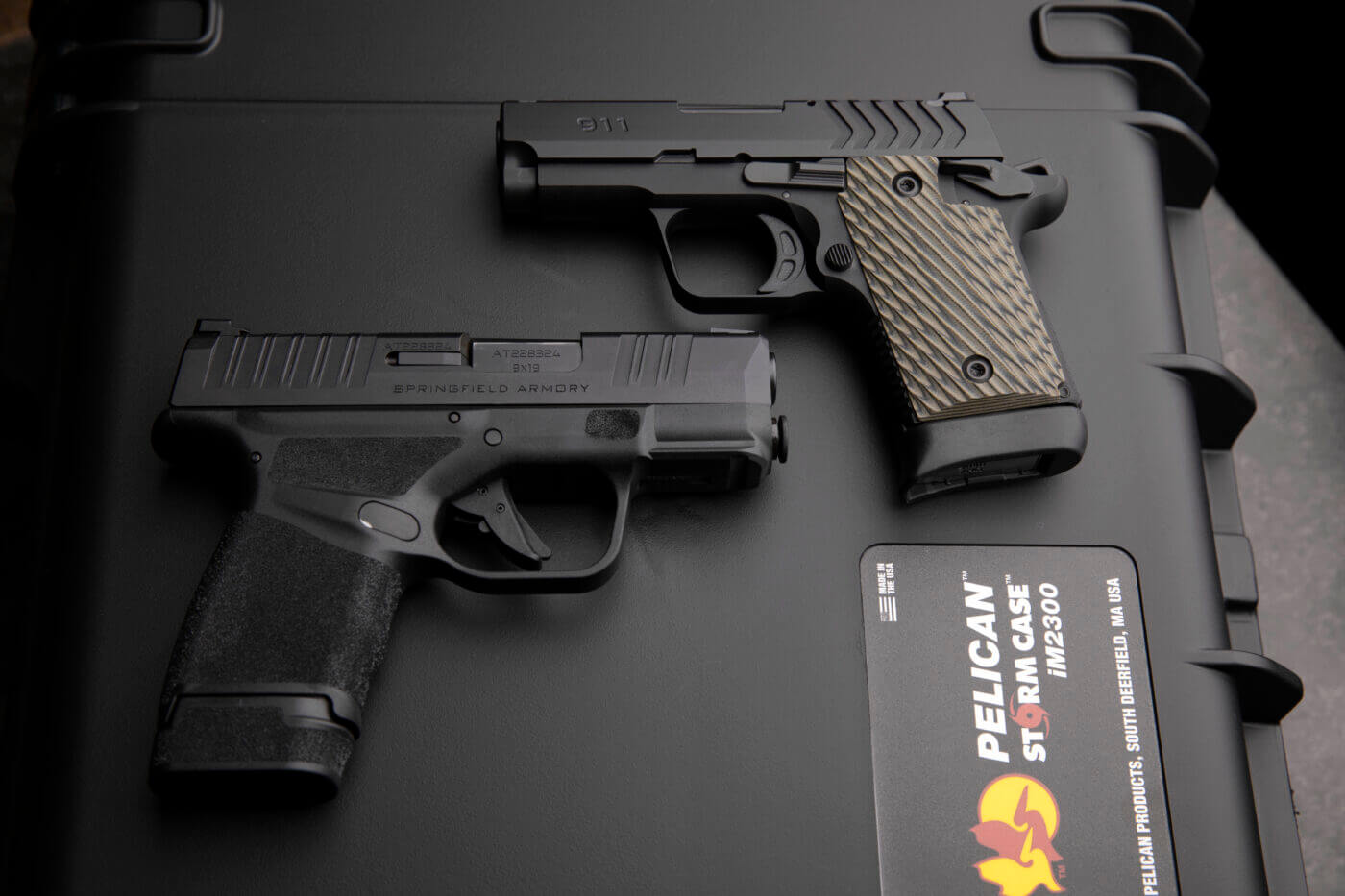
If a crime weapon is recovered, the ATF will trace the gun via its serial number starting with the manufacturer, through the distributor, and then on to the individual FFL dealer. The dealer will then produce the form 4473 that identifies the final purchaser. This decentralized system very effectively prevents anyone from maintaining a database of American gun owners, something that is expressly forbidden by federal law.
What Is a Waiting Period to Buy a Gun?
A waiting period for gun purchases is a legally mandated delay between purchasing the firearm from a dealer and when the buyer can take possession of it. These periods typically range from 3-14 days depending on state law.
The stated purposes of waiting period laws include:
- Allow time for background checks to be completed thoroughly
This excuse was removed with the implementation of the instant background check system. However, most state laws passed using this motivation remain in place.
- Provide a “cooling off” period that might prevent impulsive acts of violence
Peer reviewed research has not clearly correlated waiting periods with significant impacts on violent crime.
Waiting periods vary significantly by state in the US — some states have no waiting period at all, while others apply them to all firearms or just certain types like handguns. The specific requirements depend entirely on where you live.
Just Amazon It?
You cannot legally buy a gun directly over the internet. That’s just an anti-gunner talking point. And buying a gun illegally is one of those crimes that Uncle Sam typically takes pretty seriously.
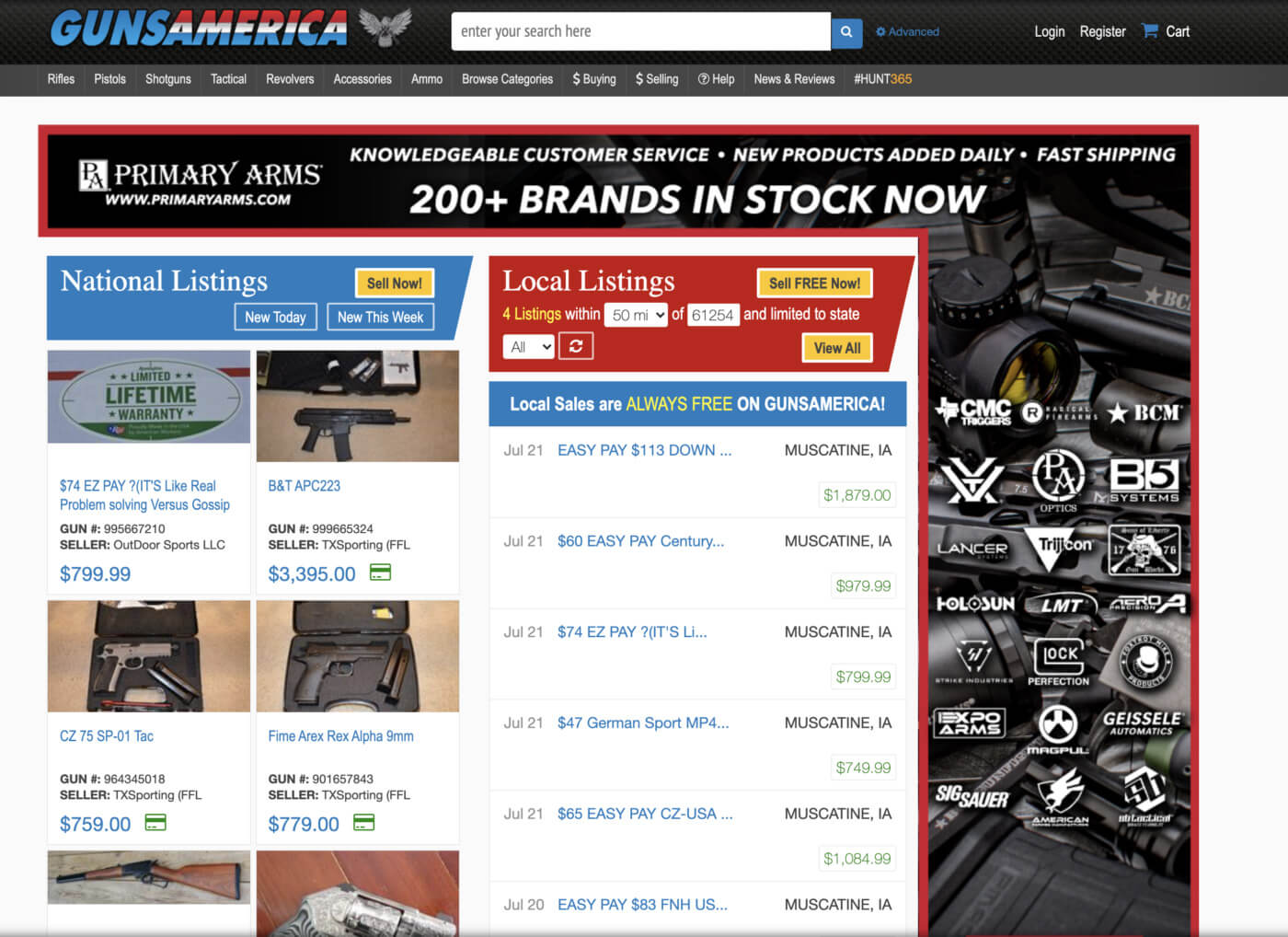
There are lots of places to buy guns on the internet, but they will all have to be transferred through your local FFL dealer. That FFL dealer will usually charge a modest fee to do the transfer. Google can help you find an FFL dealer locally. Call the dealer in advance and they can tell you what their fee is. $20 to $50 is pretty typical.
Many licensed dealers sell guns online, but all transfers will be completed at a local dealer where you will complete a 4473 form and have a NICS check completed.
Once you’ve purchased a firearm online, contact your local gun dealer and they will submit a copy of their federal firearm license (FFL) to the seller. The gun is then shipped to the FFL’s business premises where you then go undertake the transfer.
Ruminations
There are nearly 400 million firearms in circulation in America among some 328 million citizens. Gun buying may seem intimidating at first, but it’s really not difficult. If you’re a first-time gun owner I’d strongly recommend you seek out a training course to help familiarize yourself with your new firearm. Your FFL dealer is a good place to start.
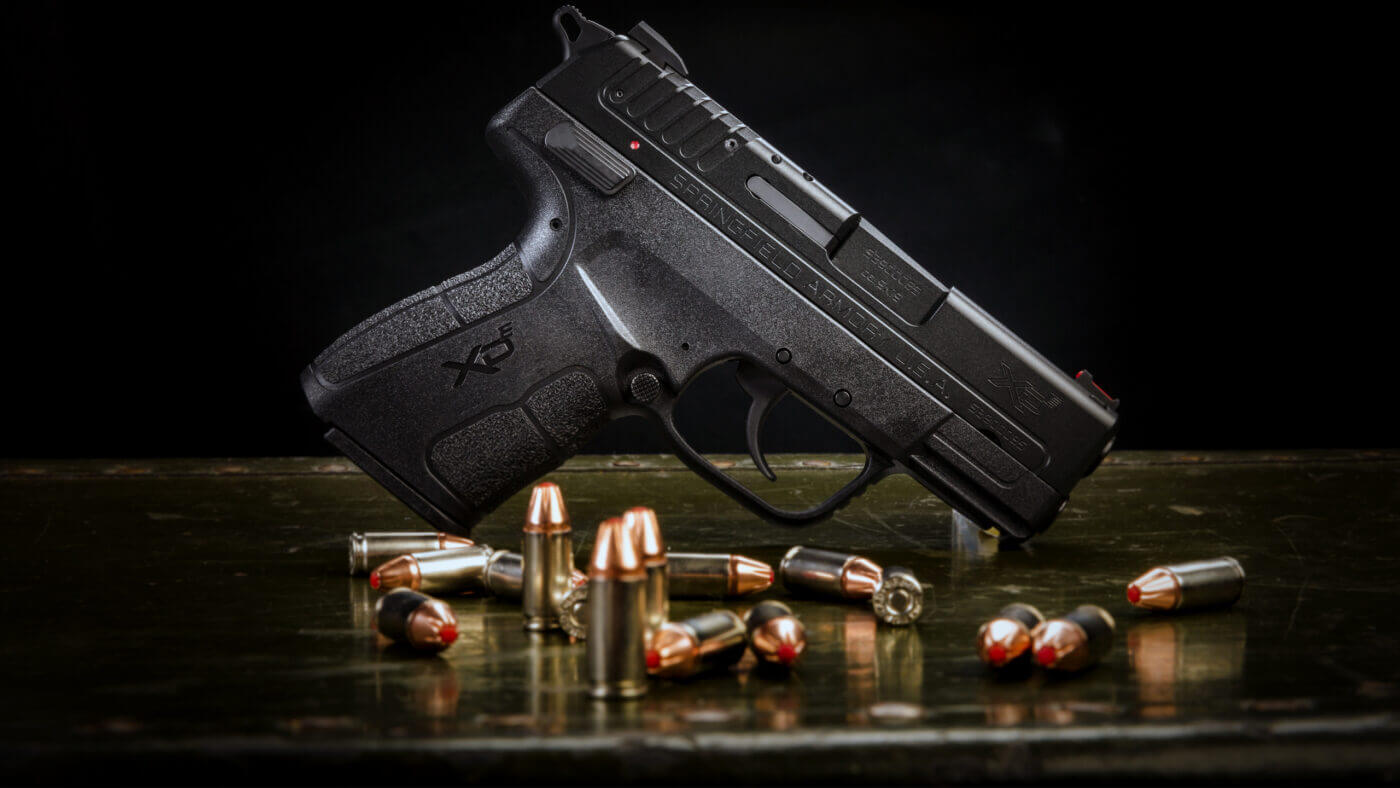
Responsible gun ownership is the cornerstone of American freedom. That freedom is what makes America different, more productive, and frankly better than the rest of the world if you ask me. So, go out and exercise your Second Amendment rights. And we hope this guide makes the process a little bit more clear.
Editor’s Note: Please be sure to check out The Armory Life Forum, where you can comment about our daily articles, as well as just talk guns and gear. Click the “Go To Forum Thread” link below to jump in and discuss this article and much more!
Featured in this article
The post How to Buy a Gun appeared first on The Armory Life.







